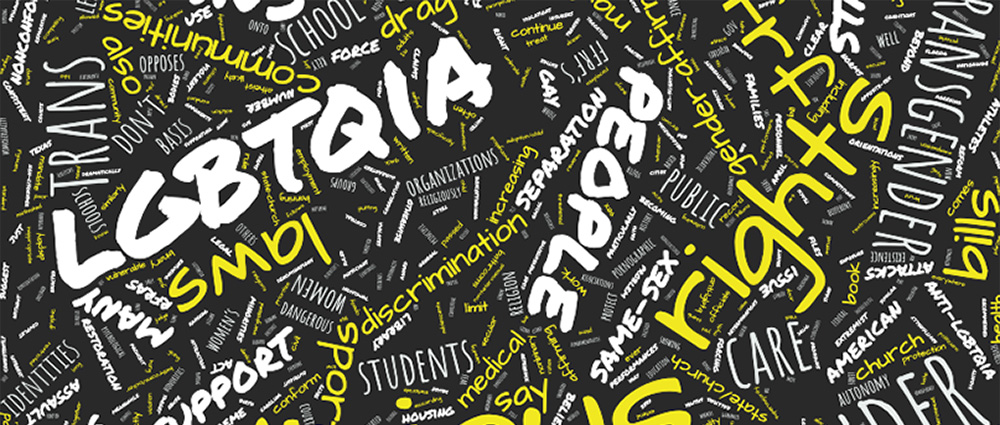
“Don’t Say Gay/Trans” bills, forced outing, book bans, sports bans, and bathroom bans have dominated much of the news cycle over the past year, severely limiting the rights of LGBTQIA+ students and teachers, and putting their careers, health, safety and lives at risk.
“Don’t Say Gay/Trans” Bills: These bills typically prevent school personnel from any discussion of gender or sexuality in the classroom, and in some cases limit students from discussing their own identities or families with peers. School personnel in same-sex relationships would not be able to mention their partner or display wedding photos on their desks — all completely normal and appropriate things teachers in opposite-sex relationships discuss with their students or are allowed to do. Trans teachers may not even be able to teach at all, particularly non-binary teachers who use non-gendered pronouns and honorifics such as Mx. (pronounced “mix”) or Tr. (pronounced “teacher”) or who choose to forgo honorifics altogether. Students with parents or other family members in same-sex relationships may also be limited from sharing very basic details about their lives, such as what they did over the weekend, for fear of being disciplined.
While these bills are typically written to avoid referencing non-heterosexual orientations and non-cisgender identities, the rhetoric and debate surrounding them make it very clear that they are meant to apply only to LGBTQIA+ communities, and that the heterosexual, cisgender community members whose relationships conform with a religious understanding of marriage and existence would be free to continue their lives as before.
School Voucher Programs: Our school system is the public institution most vulnerable to state-church violations, and LGBTQIA+ students are at particular risk for harm. Each year, billions in taxpayer funds are poured into private schools — most of which are religious — through school voucher programs. Many of these schools have policies that mandate discrimination against LGBTQIA+ employees, families and students. In some cases, such schools will go so far as to require that students who identify themselves as LGBTQIA+ be placed into dangerous conversion therapy programs. The risk created by these policies is not limited to students who identify as LGBTQIA+ in some way, as even students who simply appear to be LGBTQIA+ have been expelled from religious schools, despite not necessarily identifying as such. Taxpayer dollars should not be spent endorsing religious belief and the discrimination that often accompanies it.
Book Bans: Attacks on school, classroom and public libraries have become a hallmark of the religious crusade against not only LGBTQIA+ rights, but also science, history, racial equality, disability rights and beyond. Approximately four in 10 banned books are banned because of references to marginalized genders and sexualities, according to PEN.
Bans on LGBTQIA+ representation and content in books and other library media are often based on the charge that they are pornographic, violent and otherwise inappropriate for children to encounter. Characterization of LGBTQIA+ existence as inherently pornographic is not only harmful and innaccurate, but also hypocritical. Many religious texts, including the Christian bible, contain material that is far more graphic than any book aimed at LGBTQIA+ young adults, yet there is no major public outcry against exposing youth to those materials.
Learn more about FFRF’s efforts here:
FFRF to Florida residents: If your school district is banning books, make sure it bans the bible
Book bans abhorrent and misplaced, FFRF tells Idaho school board
Recognizing Library Workers Day on April 25
FFRF: “Don’t Say Gay” law is theocratic assault on LGBTQ Floridians
Fla. teen activist against ‘Don’t Say Gay bill’ gets $5,000 FFRF award

